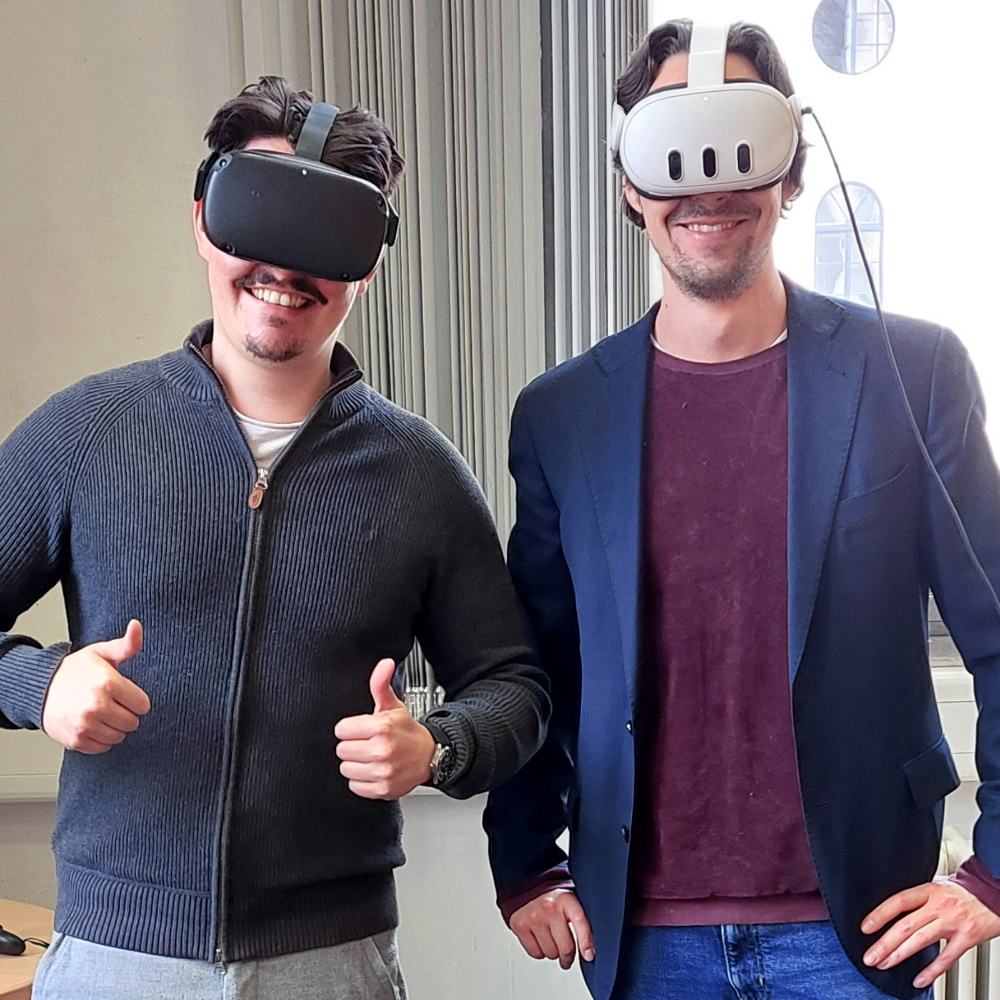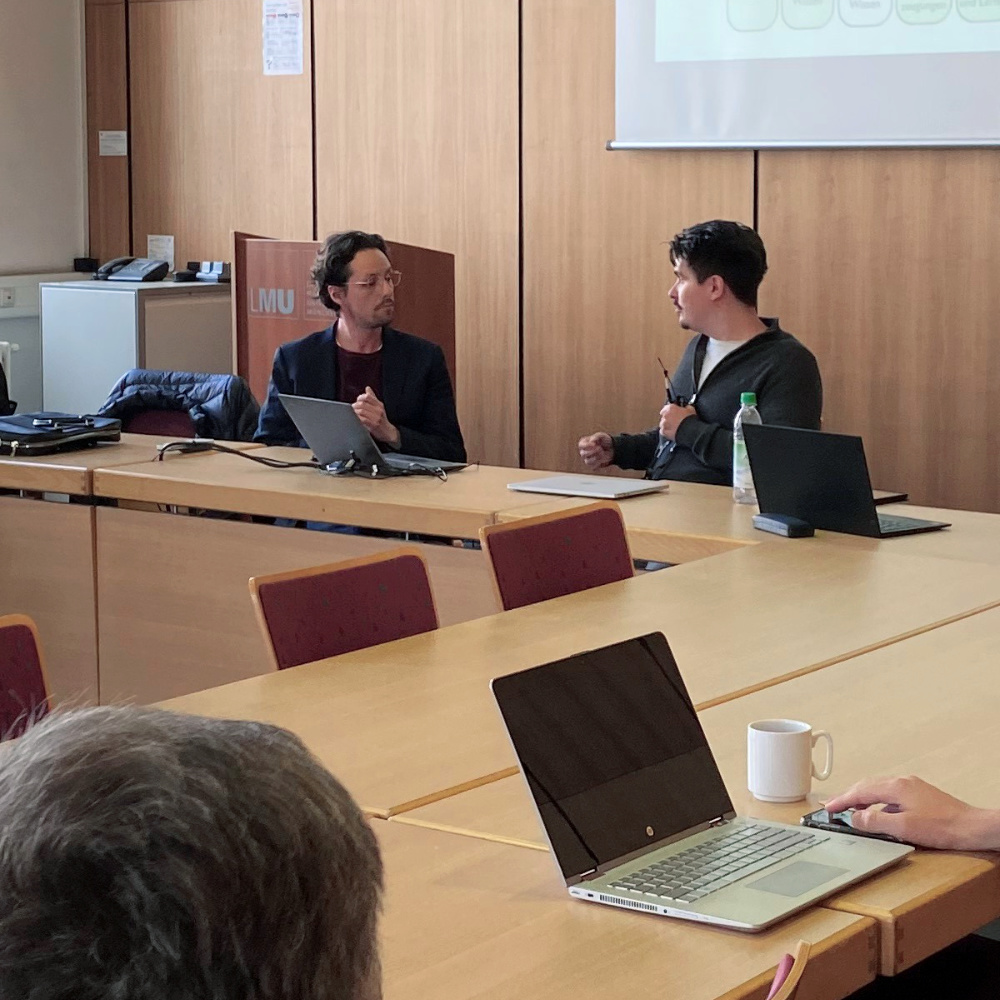At the kick-off event of the new training series, the MZL, together with the GSI, invited teachers of all school types and subjects to expand their conceptual and didactic-methodical knowledge of the EU.
In cooperation with the Chair for Political Education and Didactics for social studies at the Department of Political Science at LMU (GSI), the MZL hosted the first event of a new training series on Thursday, April 18, 2024, on the topic of “EU goes school – Teachers as EU Ambassadors (EGS-LAB)”.
The project of the same name aims to support (prospective) teachers in deepening their own knowledge of EU topics and developing their ability to teach them in high-quality lessons. A virtual learning platform (e-learning) has already been developed to expand conceptual knowledge, which can be completed through self-study. Subsequently, student teachers and trainee teachers designed teaching units on the EU as part of a university seminar, which were evaluated and revised following their own implementation. A further component of the project is to develop a multiplier program. The aim of this program is to disseminate the project results and thus reach as many teachers as possible. Teacher training is the first step in informing teachers from different types of schools and training them as multipliers. They can then in turn take their knowledge back to their school, pass it on to their colleagues and their class and thus provide new impulses in terms of EU and democracy education in a broader sense.
After a welcome and brief presentation of the “EGS-LAB” project by the MZL, Dr. Andreas Kalina from the Academy for Political Education in Tutzing opened the content-related part of the training with his lecture “Controversial guiding principles: The European community of values and law under pressure – not only from Eastern Europe”. He first examined the guiding principles of European unification and contrasted these with European integration. He stated that these guiding principles are losing their appeal and that the EU is losing its binding force as a community of values and law. He focused in particular on the relationship between the Central Eastern European Visegrád states and the EU and European integration, as well as the possible modernization impulses and potential for this integration.

With regard to the “EGS-LAB” project, Kalina also emphasized the relevance of each individual contributing to the European project in order to support the system. Teachers need to be trained accordingly. In this context, he also emphasized the current relevance of this with regard to the upcoming European elections in June 2024. Finally, an exchange between the experts and teachers as well as between the teachers themselves was initiated during a short break.
In the second part of the training course, GSI speakers Fabian Heindl and Nils Preissner once again emphasized this topicality. By lowering the voting age to 16, the complex multi-level system of the EU must be explained and worked through at school at an early stage so that pupils can develop an informed opinion on it. It is also a constantly changing system, so textbooks and materials should be updated regularly. Teachers who are familiar with EU topics seem to be able to integrate them into their lessons more often and teach them more effectively, which in turn has a positive impact on students’ skills. At this point, the individual elements of the “EGS-LAB” project and their potential for teacher training were highlighted and their use in the school or classroom was also clarified.

The final workshop part of the teacher training served to highlight the implementation options in relation to the different types of schools. To this end, the teachers were first divided into school-specific groups, each of which was moderated by a GSI expert. Within their group, they were first able to discuss their previous experiences and points of contact with the topic of the EU. This was followed by a brief input on European education in science, the curriculum and the points of contact in the curriculum of the respective type of school. Finally, possible approaches, methods and specific teaching examples were discussed. The teachers were thus able to analyze and reflect on school-appropriate material on European education and try out the elements of the project themselves (e.g. e-learning via VR glasses or tablet/computer).
At the end, the groups were opened up to encourage discussion across all school types, clarify open questions and ask for feedback. This was very positive: The teachers reported a profitable exchange between theory and practice, which is to be expanded in further training courses from this series.
